Alumni Fraternity Invites Russian Envoy to Forum
Ambassador stresses Russia's role for peace on Korean Peninsula


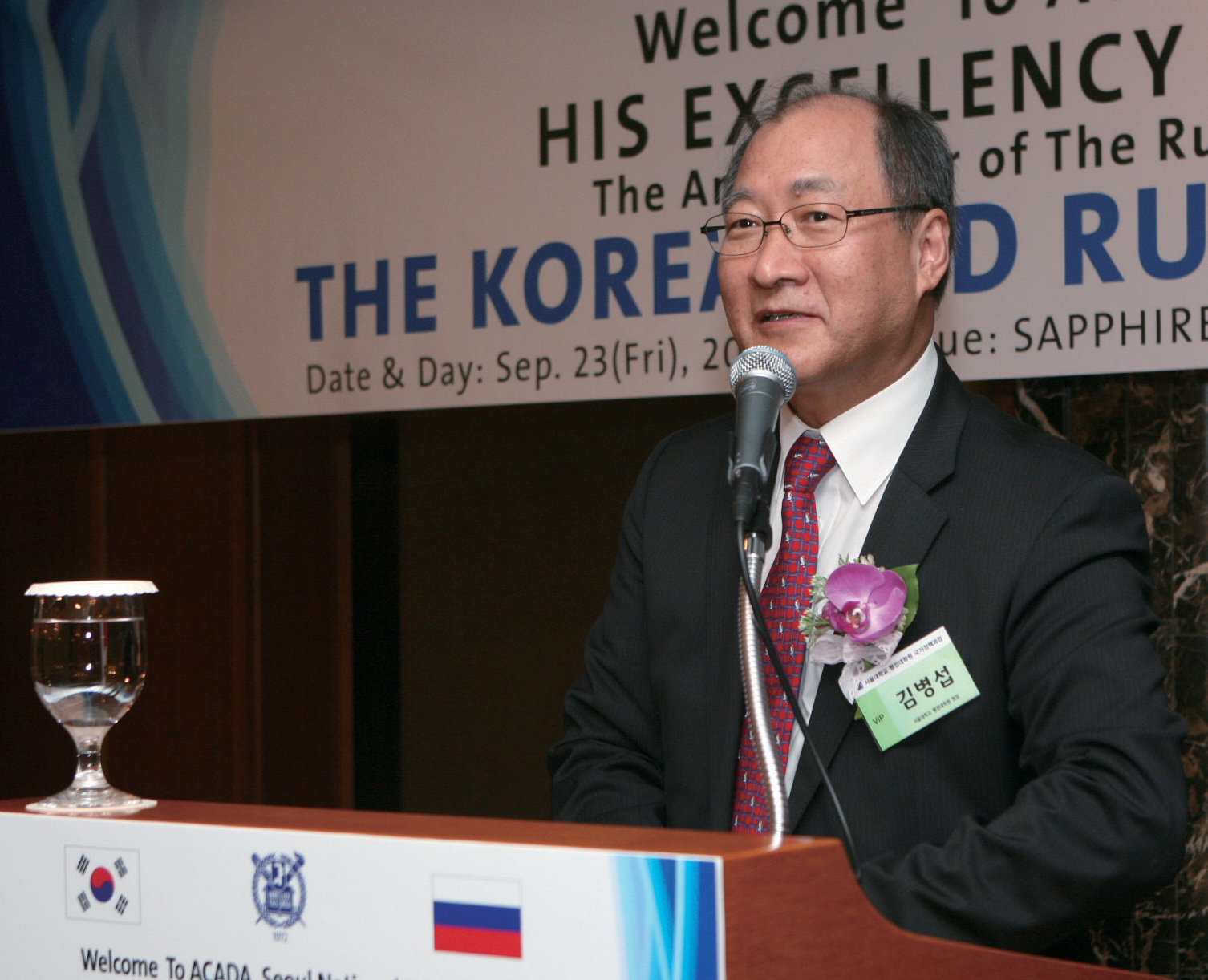
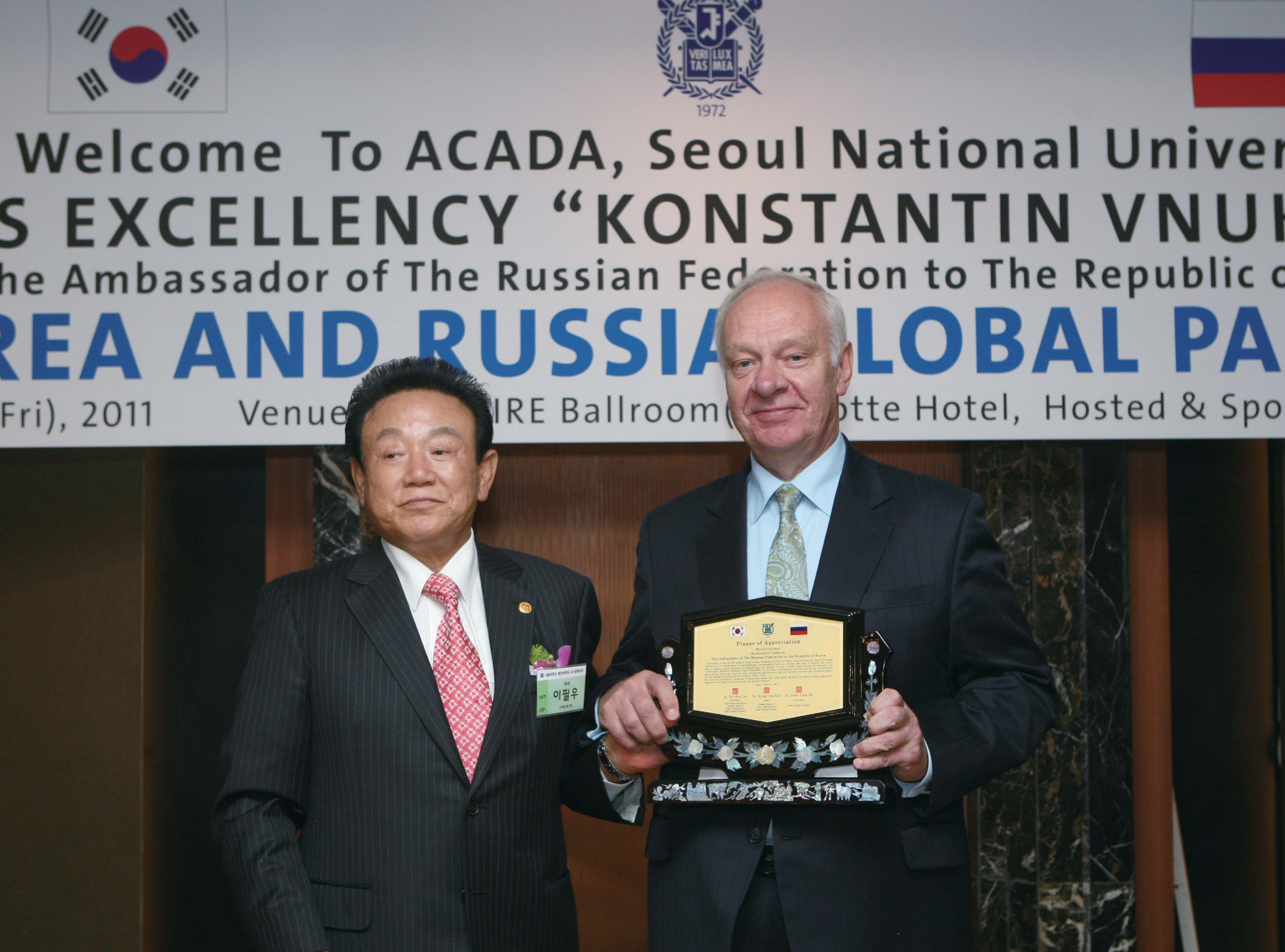
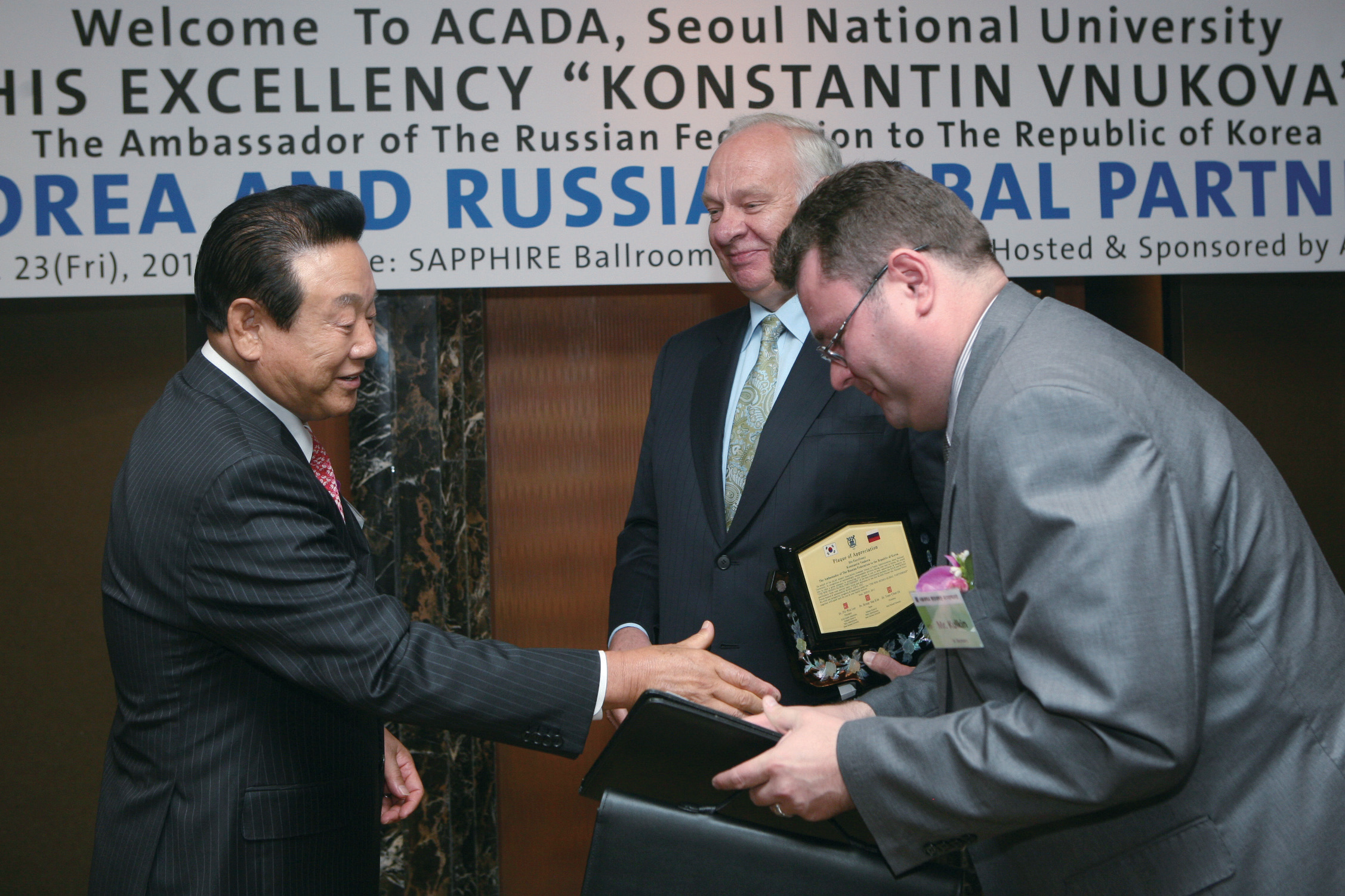
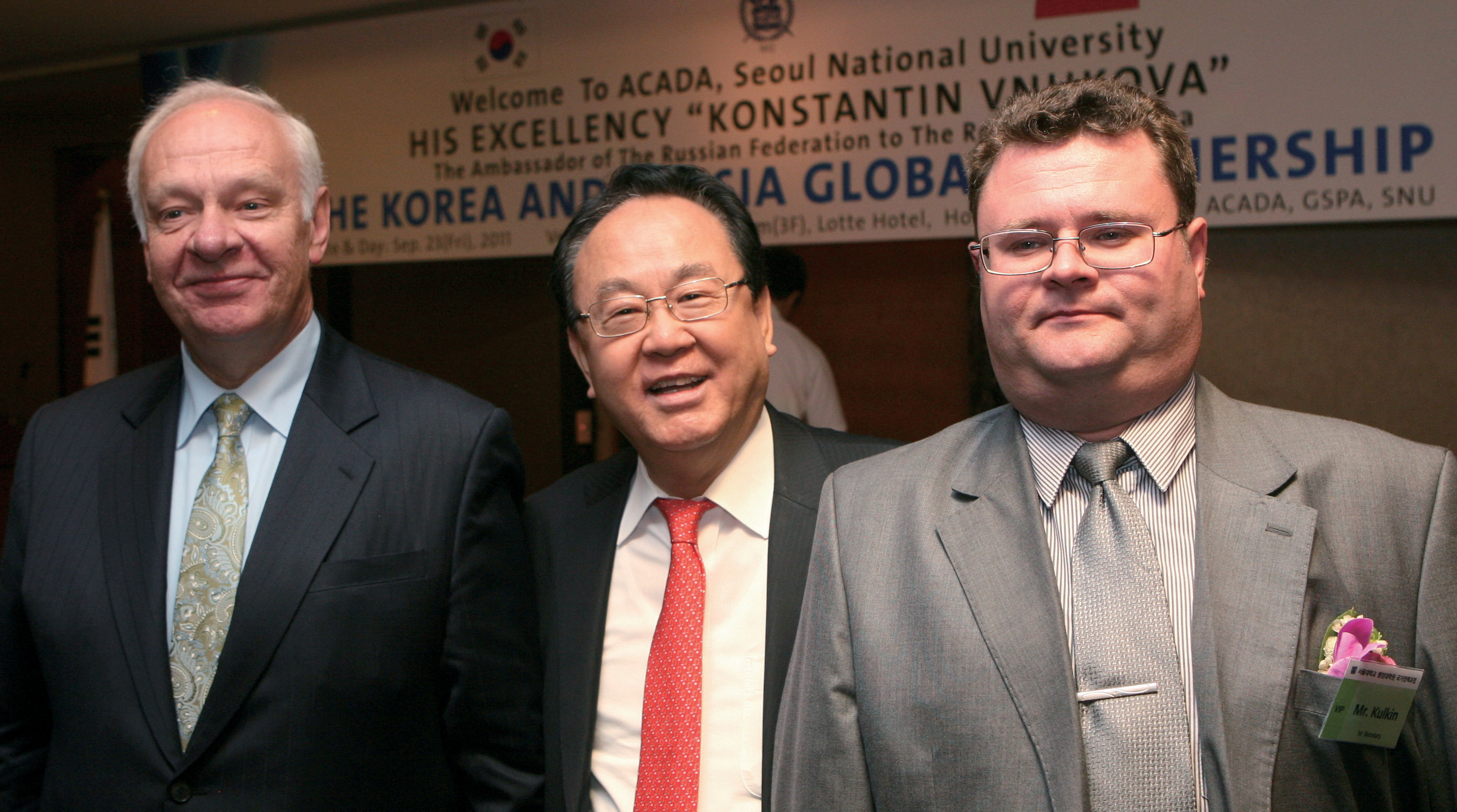
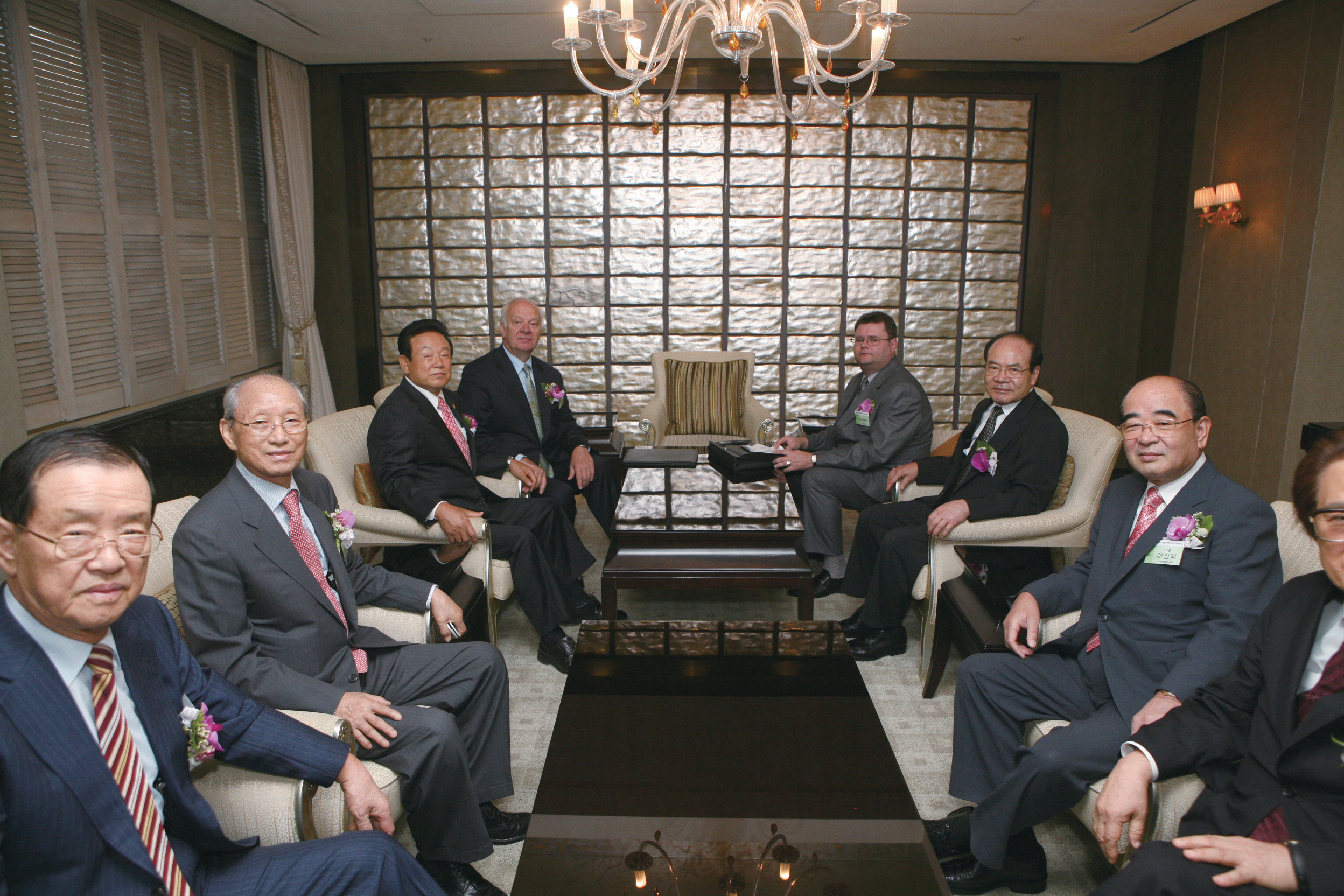

Dong-il Group Chairman Lee Pil-woo, chairman of the Advanced Center for Administrative Development Alumni (ACADA), invited Russian Ambassador to Korea Dr. Konstantin Vnukov to a forum for a speech at 7:30 a.m. Sept. 23 at the Lotte Hotel. The forum attracted alumni of the Seoul National University graduate school of management where the envoy expressed Russia's hope to see 'permanent peace on the Korean Peninsula.'
Chairman Lee has been hosting the forum by inviting envoys of the four major nations surrounding the peninsula to provide opportunities for an overview of the security situation in East Asia and its future direction. The event began with a remark by Lee, followed by the ambassador's speech, a question-and-answer session, a congratulatory statement by the dean of the graduate school, and a photo session.
Lee served as a lawmaker under the former President Chun Doo-hwan government. With deep insight and judgment, he has been holding the forum on national affairs every season for the purpose of invigorating the activities of the alumni fraternity, receiving favorable responses from the members.
Following is a speech made by Ambassador Vnukov:
Russia committed to securing peace on the Korean Peninsula
There were many changes in international politics in the 20 years since the end of the Cold War. The Russian Federation, as the successor of the Soviet Union, took over the state as the member of the standing committee of the United Nations Security Council. Russia has also introduced democracy and a market system while inheriting the powerful economic and military potentiality including nuclear weapons and missiles. Russia's external policy is also directed at maximizing national interests rather than pursuing an ideology with a focus on improving the quality of the people's life.
Regrettably, the collapse of the Berlin Wall, which ended the two-decades long Cold War confrontation and a major realignment in the international community, has failed to reach the Korean Peninsula. The two Koreas are still at war technically along the demilitarized zone over the past six decades.
The Korean peninsula faces a very precarious situation in which a spark of light could trigger an all-out war. The series of tragic incidents that occurred in 2010 show how tense the situation has become on the peninsula. The situation on the peninsula is closely related to the security of the residents in the far east region of Russia and the plan for regional development of Far Eastern Siberia. It matches Russia's interest to see a unified and democratic Korea with friendly ties with Russia.
Russia firmly believes there is no other way but to pursue a political and diplomatic solution on the Korean issues. The six-party talks is the optimum mechanism to find solutions to all pending issues including the nuclear issue.
Russia made brisk contact with North Korean authorities early this year to enable Russian Vice Foreign Minister Alexei Borodavkin to visit North Korea and reap a good result. North Korea, in particular, withdrew its demand to replace the armistice agreement signed in 1953 and a stopping of the sanctions by the UN Security Council, which it had insisted on in return for the resumption of the six-way talks. Russia also asked North Korea to terminate nuclear tests and missile firing and to allow IAEA experts access to the uranium enrichment facilities in Yongbyeon. North Korea expressed a willingness to discuss the issues within the framework of the six-party negotiations.
Russia also stressed the need to resume the inter-Korean dialogue and cooperation when North Korean leader Kim Jong-il made a visit to Russia and officials met with their North Korean counterparts. Russia also made it clear that it has a great interest in the projects for the construction of a railroad linking the three nations along with gas pipelines and electricity lines. Russia feels the need to prepare a basis for the project for its political and economic interests. nw
Dong-il Group Chairman Lee Pil-woo, also chairman of the Advanced Center for Administrative Development Alumni (ACADA), Graduate School of Public Administration, Seoul National University, speaks at the forum at the Lotte Hotel on Sept. 23.
Russian Ambassador to Korea Dr. Konstantin Vnukov gives a speech in which the envoy expressed Russia's hope to see 'permanent peace on the Korean Peninsula.' Photos by NewsWorld
(clockwise) Kim Byung-sup, dean of Seoul National University, Graduate School of Public Administration, speaks at the forum,; Russian Ambassador to Korea Dr. Konstantin Vnukov receives a plague of appreciation from ACADA Chairman Lee,; The Russian ambassador meets wit Chairman Lee prior to his speaking to the forum on Sept. 23 at the Lotte Hotel,; ACADA Secretary General Lee Wang-ryul poses with the Russian diplomats,; ACADA Chairman Lee shakes hands with a Russian envoy.
Russian Ambassador to Korea Dr. Konstantin Vnukov and Lee Pil-woo, chairman of the Advanced Center for Administrative Development Alumni, Graduate School of Public Administration, Seoul National University, pose with other alumni for a group photo after finishing the forum.
Photos by NewsWorld
3Fl, 292-47, Shindang 6-dong, Chung-gu, Seoul, Korea 100-456
Tel : 82-2-2235-6114 / Fax : 82-2-2235-0799